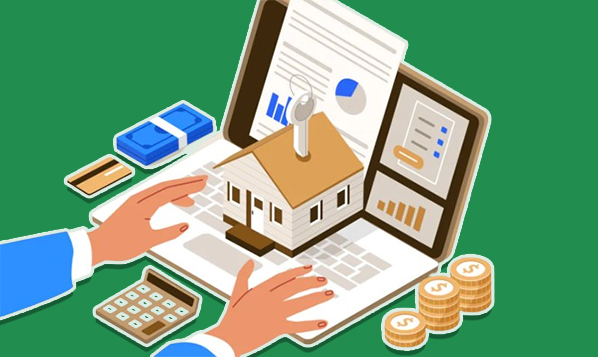Mortgage lenders prefer applicants who have no other debts because they intend to minimize certain risks. In this current economy, some borrowers are extremely uncommon, and credit in one way or another is usually taken out. Therefore, you may have a better chance than you may believe, despite your perception that getting a mortgage could affect personal loans.

Personal loans can affect your mortgage application and approval process just like they will with any other debt that shows up on your credit reports. In addition, how you handle a personal loan will affect how lenders see the debt and your creditworthiness. This article will explain the potential effects of a personal loan on your application and how a mortgage broker can assist you in navigating the process in these situations.
How Do Personal Loans Work
Personal loans offer borrowers the opportunity to access the entire loan amount upfront through consistent payments over a predetermined repayment period. Most personal loans are unsecured, meaning no collateral is required. This unique feature is what makes it distinguishes from many other loan kinds.
Furthermore, borrowers can use the money from a personal loan for almost anything they want, with very few exceptions. However, unlike secured loans like mortgages and auto loans, personal loans usually have higher interest rates. Therefore, they might not be the best choice if you’re planning a big purchase.
How Do Personal Loans Affect Getting a Mortgage
Regardless of the type of credit you choose, obtaining new credit while applying for a mortgage loan may put your future home purchase at risk. Personal loans can affect your mortgage application in several ways, including the following;
Your FICO score
Your payment history, which includes on-time monthly payments, affects your credit score. Installment loans, such as personal loans, are not the same as rotating credit cards. Age is a positive factor in credit scores, and having older accounts can raise your score. However, because obtaining a personal loan requires a hard credit inquiry and opens up a new credit line, doing so may initially lower your FICO® Score. The newness of the credit line can also lower the average age of your credit lines.
Your payment history
Your personal loan payment history may have a direct impact on your mortgage application. Mortgage lenders may reject your application if you have two late payments in the last six months or one account 90 days past due. Therefore, a personal loan can be a significant burden if installments are not paid on time. However, paying bills on time for more than a few months may indicate your ability to repay a mortgage.
Debt-to-income ratio
A key factor in assessing whether a home is affordable is the debt-to-income ratio (DTI), which is a measurement of debt about income. Banks and programs have different requirements for mortgage underwriting; some concentrate on front-end and back-end DTI. The front-end DTI ratio for FHA loans is less than 31%, whereas the back-end DTI ratio is 43%.
With conventional loans, this ratio could potentially rise to 50%. Lenders compare monthly debt obligations to income using credit reports from three major credit agencies. The factors considered include minimum credit card, auto loan, child support payments, liens or judgments, and personal loan payments. Furthermore, DTI is flexible in mortgage application components, and lenders are more accommodating if two components show strong performance.
Can I Get a Mortgage if I Have Received a Personal Loan
A loan may not prevent you from getting a mortgage, but it may limit the amount you can borrow. Lenders look at your debt-to-income ratio (the ratio of your debts to your income) to determine if you can afford a mortgage. Your mortgage terms can be improved with a large deposit, consistent income, excellent debt management, and a high credit score.
However, you could have your mortgage application denied because of a personal loan. This could occur for various reasons, including:
- Current loan.
- The loan amount.
- Your additional debts.
- Your total credit rating.
- Your debt-to-income ratio.
Therefore, if you’re thinking about buying a house as well, you should carefully consider taking out a personal loan if you don’t already have one. If you have already obtained a loan, proceed cautiously when applying for a mortgage. If your affordability application is denied, your credit score may be temporarily lowered, which may have an impact on future applications.
How Mortgage Brokers Can Help You With Personal Loan
You can contact a mortgage broker if you’re concerned that your loan will make it difficult for you to obtain a mortgage. They can assist in various ways:
Giving you tips on improving your credit score
A broker can help you understand how obtaining a personal loan can affect your credit score and what steps you can take to prevent this from happening. Brokers offer unbiased, individualized advice. You might have more options for lenders if your credit score is higher.
Preventing mortgage applications from being denied
Additionally, your broker will be aware of how various lenders evaluate applications, enabling them to determine which loan you have the best chance of getting approved for. Obtaining quick mortgage approval and avoiding application rejection can improve your credit score in the short term.
Finding the best deal for you
Having a loan doesn’t obligate you to accept a significantly lower rate, even if you may not be eligible for the best online rates. Furthermore, your broker will compare all qualified mortgages and advise you on the best overall value, including any additional costs.

